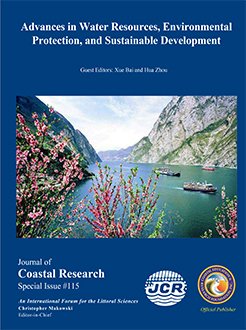Wang, N.N. and Liu, W., 2020. Mathematical model of port scheduling problem based on multi-objective particle swarm optimization. In: Bai, X. and Zhou, H. (eds.), Advances in Water Resources, Environmental Protection, and Sustainable Development. Journal of Coastal Research, Special Issue No. 115, pp. 561-565. Coconut Creek (Florida), ISSN 0749-0208.
With the rapid development of international trade, it is particularly important for port enterprises to accelerate the construction and improvement of port collection and distribution, so as to promote the development of other modes of transportation. In this paper, the Particle Swarm Optimization (PSO) algorithm is used to solve the two-way flow of quayside vessel and Counter truck SCS problem. To solve this problem, A linear integer programming model is established, the lower bound is constructed, and the particle swarm optimization algorithm is solved. The performance of the proposed particle swarm optimization algorithm is tested by random experiments. The experimental results show that the average deviation between the proposed PSO and the optimal solution and the lower bound is 1.26% and 2.48%, respectively, it is shown that the proposed particle swarm algorithm can effectively solve bidirectional flows of ribbed and collecting card SCS problems.





